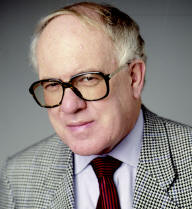The Editor's View Nov 04
Magazine

John Jenkins' monthly column from Writers' Forum magazine
The seven basic plots – according to Christopher Booker . . . Waterstone’s boost for small publishers
EVERY now and then, not as often as we would like, a book appears about the craft of writing which is chapter and verse above the mass of how-to literature. Such a volume is The Seven Basic Plots by Christopher Booker.
But anybody who buys it expecting it to provide a quick-fix route to bestsellerdom is in for a shock.
It could not be further away from the rash of cut price volumes offering advice and instant success.
However, if you are taking a master’s degree in creative writing or better still study literature for its own sake and the enhanced enjoyment you experience through knowing more about the subject, this is a book you should put at the top of your list. It ranks alongside Aristotle’s Poetics.
Booker’s volume is a work of monumental scholarship, research and deduction. Although it will figure high in future lists of required reading for Eng. Lit. followers it is never dull or pretentious.
From Beowulf to Jaws and from Gilgamesh to Lord of the Rings Booker uncovers common factors which have thrilled audiences through the ages.
If there is a story inside your heart it may well help you to transfer it to the page in a form which will excite and entertain.
It will articulate half-formed opinions and thoughts you may well have held for some time, looking for confirmation that your feelings are correct.
Why classic stories remain classic stories in one guise or another for ever. Why overcoming a monster, travelling from rags to riches, completing a quest, embarking upon a voyage, being the victim of tragedy and suffering the pangs of rebirth provide all the grist needed for an author’s imagination.
Some writers arrive at these answers by instinct, some by trial and error. Others study the craft of writing rather like a foreign language. Routes may vary, but the end result is the same. They reach the goal which every author seeks – to keep the reader spellbound.
At 717 pages and £25 for the hardback version this is no dainty stocking filler like Eats Shoots, and Leaves but serious stuff. It has been 35 years in the making.
At one moment we are analysing Moby Dick; at another on the trail of The Gold Rush with Chaplin. We look at Shaw, D H Lawrence, Chekhov, Shakespeare and Proust.
Booker decided in 1969 to write this book. "To spend half a lifetime writing a single book is obviously ridiculous," he claims. I disagree. Not when the result is as good as this.
As Fay Weldon puts it: "This is the most extraordinary, exhilarating book. It always seemed to me that ‘the story’ was God’s way of giving meaning to crude creation. Booker now interprets the mind of God and analyses not just the novel – which will never to me be quite the same again – but puts the narrative of contemporary human affairs into a new perspective. If it took its author a lifetime to write, one can only feel gratitude that he did it."
In fact I could not fault his analysis of great books although I was less convinced by his psycho analyses of Shaw, Chaplin, Fleming and Proust.
The Seven Basic Plots by Christopher Booker is published by Continuum at £25 ISBN 0-8264-52309-4.
WATERSTONE’S is to give independent publishers and self-published authors their own channel into the chain with the appointment of Peter Saxton as Independent Publisher Co-ordinator.
Peter was previously the group’s bibliographic editor and began his career selling at the Kingston branch in Surrey.
As part of the service Waterstone’s will also offer advice to independents and self publishers on how best to approach their task.
This is a great step forward by Waterstone’s who have stolen a march on W H Smith which has consistently neglected to spot the commercial potential in this area.
Sheila Bounford, who steps down as executive director of the Independent Publishers Guild welcomes the move. "Just because some companies are small does not mean that what they are publishing is insignificant."
David Roche, Product Director for Waterstone’s said that although the chain already deals with thousands of small and independent publishers it will improve the relationship with new authors.
"We know there are a lot of great books out there and they don’t all come from big publishers," he said.
So many good books, such little time ...
John Jenkins, Publisher, Writers' Forum
Read the article about setting up WritersServices which was originally published in Writers' Forum magazine.
© Writers International Ltd 2004. Reproduced from the December-Januray edition of Writers' Forum magazine by kind permission of the editor.
